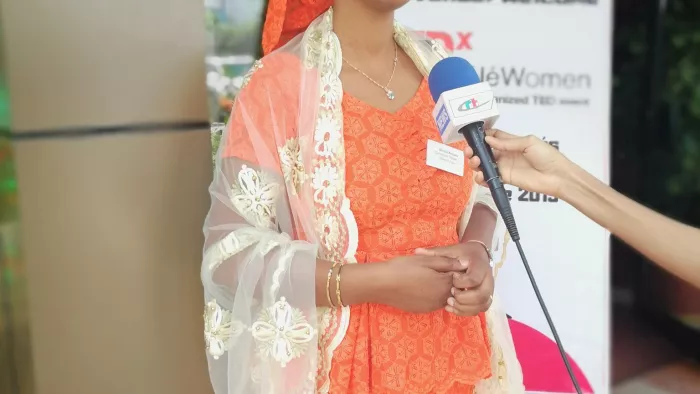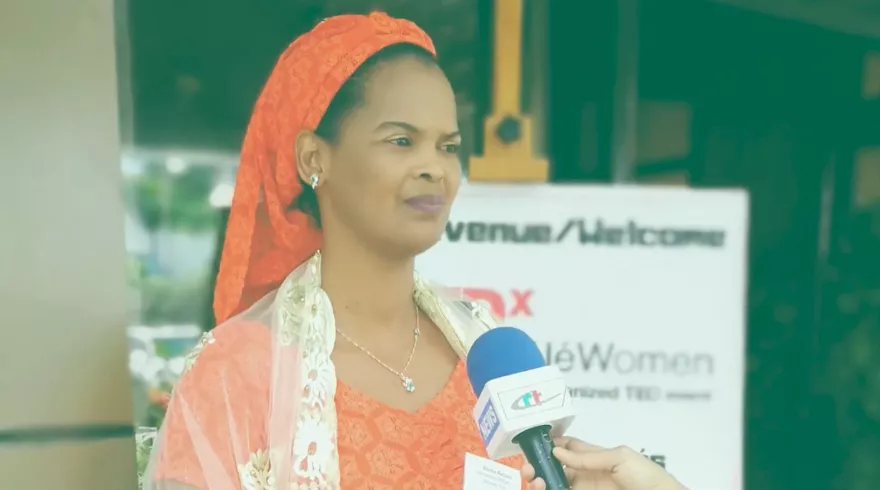
Change maker: Impactful leader
Bouba Aeisatu, Indigenous Women Forum / Cameroon
I am Mrs Bouba Aeisatu, I am an Indigenous woman from Cameroon, precisely from the Bororo pastoralist group. I coordinate the activities of Cameroon's Indigenous Women Forum, where we work with Indigenous women and girls in Cameroon, especially in areas of empowerment and gender equality. I am a Start Network Change Maker, nominated in the category of Impactful Leader.
My organisation and I have been working in our community to touch lives, especially those of women and girls. We have had a lot of impact among the community, so we think we deserve the nomination so that we can be recognised for the work that we are doing, especially in rural areas. People really do not know about us, and I think it is an opportunity for people to know that we have Indigenous women who are in this community, who are doing a great job and they need to be recognised.
Within the Indigenous community, we have this issue of women and girls who are materialised and discriminated against, especially where culture and tradition is highly practiced. So, it has put women and girls in a very difficult situation, and we thought that it is high time we raised awareness about the different types of discrimination leading to violence against them.
We are doing a lot of awareness-raising about gender-based violence, to sensitise the community members about the issues that women are facing so that they can be aware of it and stand up and speak out about this issue. And this also relates to the issues of early and forced marriages. Early and forced marriage is one of the most dangerous practises within these communities, where they feel that young girls need to go to early and forced marriage. Education is not a priority for the girl child.
We know that this is a violation of the rights of the girl, so we are educating community members about how they have the right to go to school. They should encourage their girls to further their education and we are paying a committee of women in these communities who can help us to identify cases of gender-based violence and also orate these cases to the appropriate services put in place by the government to support women's empowerment, the social affair. Oftentimes, they don’t even know that these services exist and are very far from the community. So we tell them about these government services that can help to tackle their problems.
I would like to encourage my fellow humanitarians to support each other, work together, and build movements. I think if we are working together, we will be able to move faster in order to reach our goals and change in the lives of many people. We need more humanitarian workers to mobilise resources so that we can support people who are in need.
This article is based on an interview conducted by A Good Day in Africa. Listen to the full interview below.

